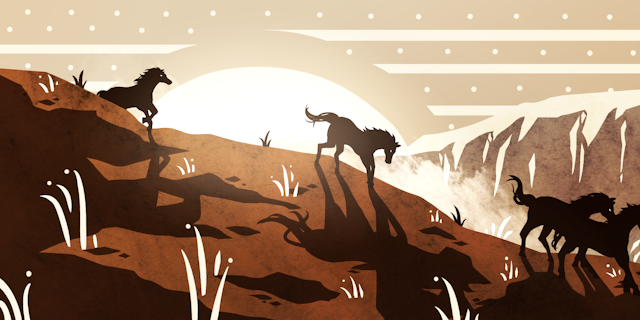While Australia debates how to reduce our wild horse numbers, other countries are working to re-establish wild horse herds in Europe and Asia. Could Australia’s attempts to “manage” brumbies be an act of hubris?
That’s the question asked in the latest episode of Essays On Air, where we read to you the best essays penned by Australian researchers.
Today’s moving and deeply personal essay, titled The cultural meanings of wild horses, is by Michael Adams, a geographer and writer who researches human-nature relationships.
He explores how cultures across the world have represented and related to horses and asks whether attempts to manage wild horse populations mean we need to rethink the concept of “wildness”.
Join us as we read to you here at Essays On Air, a podcast from The Conversation.
Find us and subscribe in Apple Podcasts, in Pocket Casts or wherever you get your podcasts.
Additional audio
A.B. (Banjo) Paterson The Man from Snowy River Poem
Stranger Eight - Ambient Acoustic
Vonora - Cuckoo & The Nightingale Duet
Oymaldonado - Movie Score Classical Theme - Sad Moody Strings
Funky Films - Walking Through Leaves
Captain Vince - Helicopter Distant Los Angeles
Canukfa - Crowd at the fence during a race
Inspector J - Stream, Water, C.
Steph 64 - Cows’ Bells
Cosmician - Meadow, fly, horse, crickets
Vincentmalstaf - Horses
Dobroide - 20070918. Galloping Horse
Inchadney - Distant motorcycle from a forest
Trianglex - Emotional Piano
Kubuzz - Horse’s whinny
GoodListener - Horse Snort 2
Trollarch - Nature/Rain/Animals
Snow by David Szesztay
Banjo Patterson’s The Man from Snow River television theme song
This episode was edited by Sarah Matthews. Illustration by Marcella Cheng.

